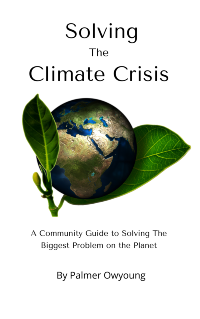When I say the word psychopath, it probably conjures up images of Norman Bates violently stabbing Janet Leigh in the shower as blood circles down the drain and the shrill, high-pitched sound-track plays in the background. Or maybe it makes you think of Anthony Hopkins in a leather mask wrapped in a straitjacket and strapped to a dolly as his eyes dissect you with unnerving ease.
This is the way Hollywood likes to portray psychopaths as serial killers. But the fact is that most are not violent. But that’s not to say that they are not destructive.
For example, I used to work with an American woman named Stephanie at a university in South Korea. She could go from being nice and charming to being angry and malicious in a single moment. If you disagreed with her or questioned her, her temper would flare, her voice would become shrill and her words would become harsh and demeaning. Then she would assassinate your character by gossiping, lying and manipulating those around her, which created a toxic workplace.
Whenever I think about a psychopath, I think of Stephanie. Maybe not in the serial killer brandishing a knife dripping in blood kind of way, but a psycho nonetheless.
Stephanie is the mundane psycho that you have likely known as a colleague, a boss, a neighbor, or maybe even a family member. While these types of psychopaths may not slice people with a knife or shoot them with a gun, they can cut with their words and manipulate with their lies.
The Damage to Society Caused by Psychopaths
Fortunately, Stephanie was only a coordinator for an English as a Second Language program at a third-tier university in South Korea, so the actual damage she could cause was minimal.
However, given their prevalence in positions of power, psychopaths have committed some of the world’s worst atrocities. For example, dictators like Adolf Hitler, Joseph Stalin, Pol Pot and Saddam Hussein all displayed psychopathic behavior with their ruthless ambition, disregard for human life and the suffering of others, coupled with their charisma and ability to charm and manipulate others.
Donald Trump has showed psychopathic behavior in his quest for power and disregard for the truth, which led to the January 6th attempt to overthrow the government and fueled the rise of racist right-wing groups like the Proud Boys and Neo-Nazis.
Bernie Madoff ran the world’s biggest Ponzi scheme, and bankrupted thousands of his victims, costing them billions of dollars. Although most violent psychopaths are men, you don’t have to be a man to demonstrate psychopathic behavior. Elizabeth Holmes, the founder of Theranos, famously deceived investors of hundreds of millions of dollars with her bogus blood testing technology, which resulted in the misdiagnosis of cancer and other diseases for users.
Some of our biggest historical catastrophes and current global problems including World War 2; the Holocaust; climate change; the opioid epidemic; the global financial crisis; plastic pollution; the release of PFAS forever chemicals; the crypto currency bubble; housing bubbles; the spread of cigarettes and vaping; are because of psychopaths.
Why Do Psychopaths Gain Power?
If we are going to prevent psychopaths from gaining power, we need to first ask ourselves why they gain power. There is that famous quote from Lord Acton who was a writer, politician and historian from the 19th century, that says “Power corrupts and absolute power corrupts absolutely.” While there is scientific evidence that power has a corrupting influence and can change your psychology, and your brain, that is only part of the story. Because true psychopaths, barring some type of traumatic brain injury, are born that way, and because of their narcissism, seek power and because of their ruthlessness and ability to manipulate others, typically gain it.
In his book, Corruptible: Who Gets Power and How It Changes Us, Dr. Brian Klaas a Professor of Political Science at the University College of London argues that there are four reasons that psychopaths end up in power and abuse it. The first is that they are drawn to power, and thus seek positions that wield it.
Second, once they get power, they are usually the ones who are the most easily corrupted by it. The third is that the public puts the wrong people into power because we are drawn to strong male leaders because of evolutionary biology. While the appearance of physical strength might have served us on the plains of Africa when it was important to ward off a competing tribe or a pride of lions, our modern society often requires a good leader to have empathy, compassion, and political finesse.
The fourth reason is that the economic system we have created for ourselves rewards people who behave psychopathically. In business characteristics like ruthlessness, lying, manipulating, and cheating are often rewarded with promotions, increased market share, and financial success.
The system further rewards psychopathic behavior by being short-term and focused on increasing shareholder value as its main metric, rather than also considering bigger picture metrics like whether the products serve the greater good, gives the customer a positive experience, and don’t destroy the environment in the process of their production.
Businesses also need to consider the long-term health and well-being of their employees. Amazon is notorious for not giving its warehouse workers or delivery drivers enough time for a bathroom break because of its quest for fast customer deliveries. This sort of toxic work environment has been accused of leading to accidents and injuries
Why We Need to Change the System to Survive the Future
The Future of Life Institute is a non-profit founded by a MIT physics professor Max Tegmark in 2015. Their stated mission is “Steering transformative technology towards benefiting life and away from extreme large-scale risks.”
Their website identifies three areas that pose the biggest threat to humanity, which include artificial intelligence, biotechnology, and nuclear weapons. However, in the coming decades climate change, quantum computing, and nanotechnology will mature, and each will pose an existential threat to society.
Given that psychopaths are characterized by superficial charm, profound dishonesty, callousness, guiltlessness and poor impulse control, preventing psychopaths from gaining power and changing the system that incentivizes them needs to be one of our biggest priorities for the future if we are to survive as a species and want to have a sustainable, livable society.
How Common are Psychopaths
According to some estimates, we find psychopathy in about one percent of the general population, and for reasons that are poorly understood, most psychopaths are male. However, psychopathy is not black and white, but it is assessed on a spectrum. Research suggests that about 3.3% of people have near psychopathic tendencies and According to PsychopathyIs, an organization that studies psychopathy, as much as 30% of the population displays some degree of reduced empathy, risk-taking, and overly high self-regard, though the percentage of people with high degrees of these traits is much smaller.
One characteristic of psychopaths is a lust for power, which means this number can be three to four times higher in jobs that wield power. According to Kevin Dutton a research psychologist at Oxford and the Author of the Wisdom of Psychopaths, the top 10 professions for psychopaths are CEOs, lawyers, TV/Radio personalities, salespeople, surgeons, journalists, police officers, members of the clergy, chefs and civil servants.
However, CEOs have one of the highest concentrations of psychopaths with about 20% of CEOs displaying psychopathic traits. This is close to what you might find in a prison population where about 25% of male prisoners have psychopathic characteristics.
Another interesting fact is that Washington D.C. has the most psychopaths per capita of any place in the United States.
What is a Psychopath?
Because they possess a specific set of personality characteristics, psychopaths can be extremely damaging to society. The three personality traits that they demonstrate are called the “Dark Triad” by psychologists. Individuals who possess these traits often exhibit malevolent behaviors and are more prone to commit crimes and commit ethical violations. The Dark Triad includes:
1. Machiavellianism -This is behavior which is duplicitous and manipulative. If you are Machiavellian, you have a disregard for moral and social rules, lie easily and can do it without guilt. Rather, you enjoy the sense of power that comes from getting other people to do what you want.
2. Lack of Conscience- You know that inner voice in your head that tells you to return a found wallet or treat others as you want to be treated? People high in psychopathy don’t have that voice. As a result, they lack many of the social emotions that other people take for granted, including guilt, remorse, sympathy, and pity.
3. Narcissism- People high in narcissism are self-centered and have an inflated sense of their qualities and achievements. They lust for power and revel in the sense that they are better and smarter than everyone around them, even if it isn’t true.
How Much Damage do Psychopaths Cause to Society?
Hitler ordered the death of six million Jews and between 70-85 million died because of the war, famine and disease. Psychopathy was just one of several mental disorders that Hitler was thought to suffer from.
From 2000 to 2019, extreme weather events related to climate change have cost an estimated $2.8 trillion by amplifying the damage by floods, fires, hurricanes, and droughts. Researchers estimate that this will rise to between $1.7 trillion and $3.1 trillion per year by 2050 if we don’t mitigate the damage and it could eventually lead to the collapse of society and even the extinction of humanity.
In 2021, internal documents revealed that oil executives at Exxon and other Big Oil companies not only denied that their product was causing climate change, although their own scientists were telling them it was. But they also paid think tanks to create pseudo-science to cast doubt and create public mistrust of the legitimate science. Exxon knew that fossil fuels were contributing to climate change, at least since the 1970s, and the deception went on for decades. The willful deception and manipulation of the truth coupled with the complete disregard for the consequences can be described as nothing other than psychopathic behavior.
The global financial crisis cost an estimated $19.2 trillion in household wealth and at least one paper presents a theory that argues that psychopaths working in financial corporations had a major part in causing the crisis.
The 2019 movie Dark Waters details how executives at Du Pont Chemicals poisoned lakes and rivers in a small town in West Virginia with their PFAS chemicals that were used to create their billion dollar a year product, TEFLON coating for non-stick pans, despite that they knew it was killing animals and creating birth defects in children. Today, we find these toxic chemicals in our bloodstream, food, soil, air, drinking water, and in wildlife.
The Benefits of Psychopaths
However, not all psychopaths are bad. If we can channel their energy correctly, they can make skilled surgeons, brave firefighters, soldiers, and even skilled chefs. Because people with psychopathic characteristics can remain calm under pressure, they can think quickly and decisively in chaotic and stressful situations. So, if properly guided, they can actually be beneficial to society.
Ways to Deal with Psychopaths
One solution to preventing psychopaths from abusing power is by identifying them from an early age. There are psychometric evaluations to identify psychopaths early on, like the Callous-Unemotional (CU) pre-psychopathic test, which looks for low levels of empathy and guilt, and a general lack of feeling for others. There is also the Deceitful-Callous (DC) behavior test, which assesses both the tendency to lack feelings for others and the tendency to lie.
Evidence of psychopathy can begin as early as 2 years old and children that scored low on these tests predicted problem behavioral problems as early as 3 years old.
We can give psychometric testing in schools and in juvenile detention. Once identified, an individual with psychopathic tendencies can be guided into specially designed programs that will cultivate their characteristics into professions and behaviors that are beneficial to society.
Conscious Capitalism
Another way to prevent psychopaths from abusing their power is by changing the system that enables them to abuse their power. For example, B-Corporations are businesses that have undergone a certification process and changed their business charters to consider more than just profits. Instead, the business is judged holistically and considers their treatment of the community, the environment, their employees, their supply chain, and their customers. The board holds the leaders of the B-Corporation accountable, and this acts a system of checks and balances.
Put More Women in Positions of Power
Electing more woman to positions of leadership is another way to prevent psychopaths from abusing their power, because fewer women show these characteristics. Studies also show that women often make better business leaders and help increase productivity, enhance collaboration, inspire dedication, and improve fairness within an organization. Despite this, females run only 10% of Fortune 500. In other words, there are more psychopaths than there are women leading large companies.
Change the System
Finally, changing the financial system so that the interests of business leaders are aligned with the long-term health and sustainability of a company rather than short-term gains is necessary to prevent the abuse of power. One way to do this would be to change the vesting schedule on stock options. Many companies have short-term schedules with options that vest over a 1 to 4 year period. Making options vest over a 10 year time frame would ensure that business leaders create long terms strategies rather than cashing out quickly.
Conclusion
Although psychopaths make up a small portion of the population, they create a disproportionate amount of damage to society. Given that in the next few decades we will face existential threats from climate change, AI, biotechnology, nuclear weapons, quantum computing and nano-technology, preventing psychopaths from getting and abusing power should be one of the paramount priorities for the world, but few people are even talking about it.




Really interesting article and a lot to consider with society, mental illness and our economic structure.